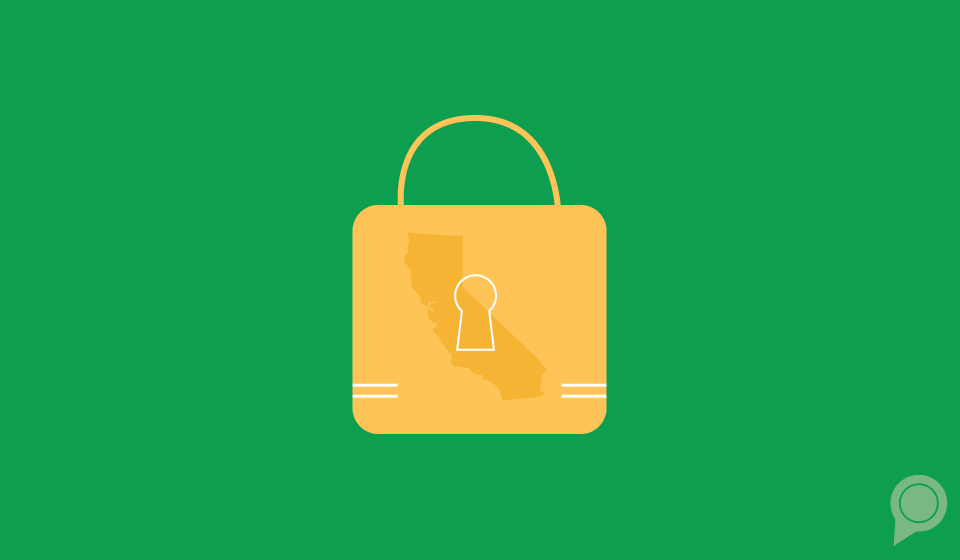

Privacy is an important part of anyone’s life, but as the digital landscape continues to grow, it can be difficult to keep your information secure.
As more breaches of account information continue to occur, consumers have become more concerned and want to consent to what information a company saves about them.
To help consumers feel at ease, the state of California proposed and passed the California Consumer Privacy Act (CCPA).
In this blog, we’ll explain what CCPA is and cover some other important questions regarding this new law.
Let’s first break down what exactly the California Consumer Privacy Act is.
What Is CCPA?
According to the State of California Department of Justice, “The California Consumer Privacy Act (CCPA), enacted in 2018, creates new consumer rights relating to the access to, deletion of, and sharing of personal information that is collected by businesses.”
So, what does this really mean?
To sum it up, it means that consumers in California are allowed to demand to see any information a company has collected about them. It also includes the list of third parties their info has been shared with.
Along with this, by law, California consumers are able to sue companies if any of the privacy guidelines are violated.
CCPA was first enacted in June 2018 but went into effect on January 1, 2020.
Keep in mind that every state has laws in place when it comes to data breaches, but some states have more strict guidelines. To find out the laws for your specific state, check out this guide.
What Personal Information Is Included in CCPA?
While the term “personal information” was loosely defined in the bill, there is some specific information mentioned in the legislation, such as:
These are just a handful of items that are included in the law. If you’d like to learn more, click here.
Which Companies Have to Comply With CCPA?
The California Consumer Privacy Act has a few thresholds that companies must be at to comply with the law:
Action Steps Businesses Can Take
If your business has to comply with CCPA, there are a few action steps that can help you can to prepare, such as:
When you work with a dedicated marketing team, they will be able to inform you of any potential changes that may affect your business, including legislation like CCPA. If you aren't sure what to look for in a digital marketing agency, check out this blog.
Why Does CCPA Matter to Businesses?
Privacy is a big deal right now and businesses should respect when consumers want to opt-out of data collection and distribution.
California saw the need to protect its residents, which is why the California Consumer Privacy Act was brought into legislation. With this new law, we anticipate that other states will follow suit and create more strict laws for consent and privacy.
Although this may seem concerning for business owners, it shouldn’t be seen as a threat!
Google already provides privacy options in their browser and Google Maps. By offering incognito mode, it allows consumers to choose whether they want to search publicly or privately.
When it comes to advertising, some consumers prefer personalized ads and find them helpful. However, others see these ads as an invasion of privacy.
By following laws put in place, like CCPA, you'll be able to better reach consumers who will find your ads beneficial.
Final Thoughts
Remember, the California Consumer Privacy Act was put in place for consumers for two reasons, including:
If businesses don't comply with CCPA, consumers have the opportunity to sue the company (if they choose to do so).
Our team is here to answer any questions you may have on how this new law may affect your marketing! Request a demo with one of our local marketing experts or send us a message on Facebook to get started.
Subscribe to our email list to get the latest digital marketing content delivered to your inbox each week!